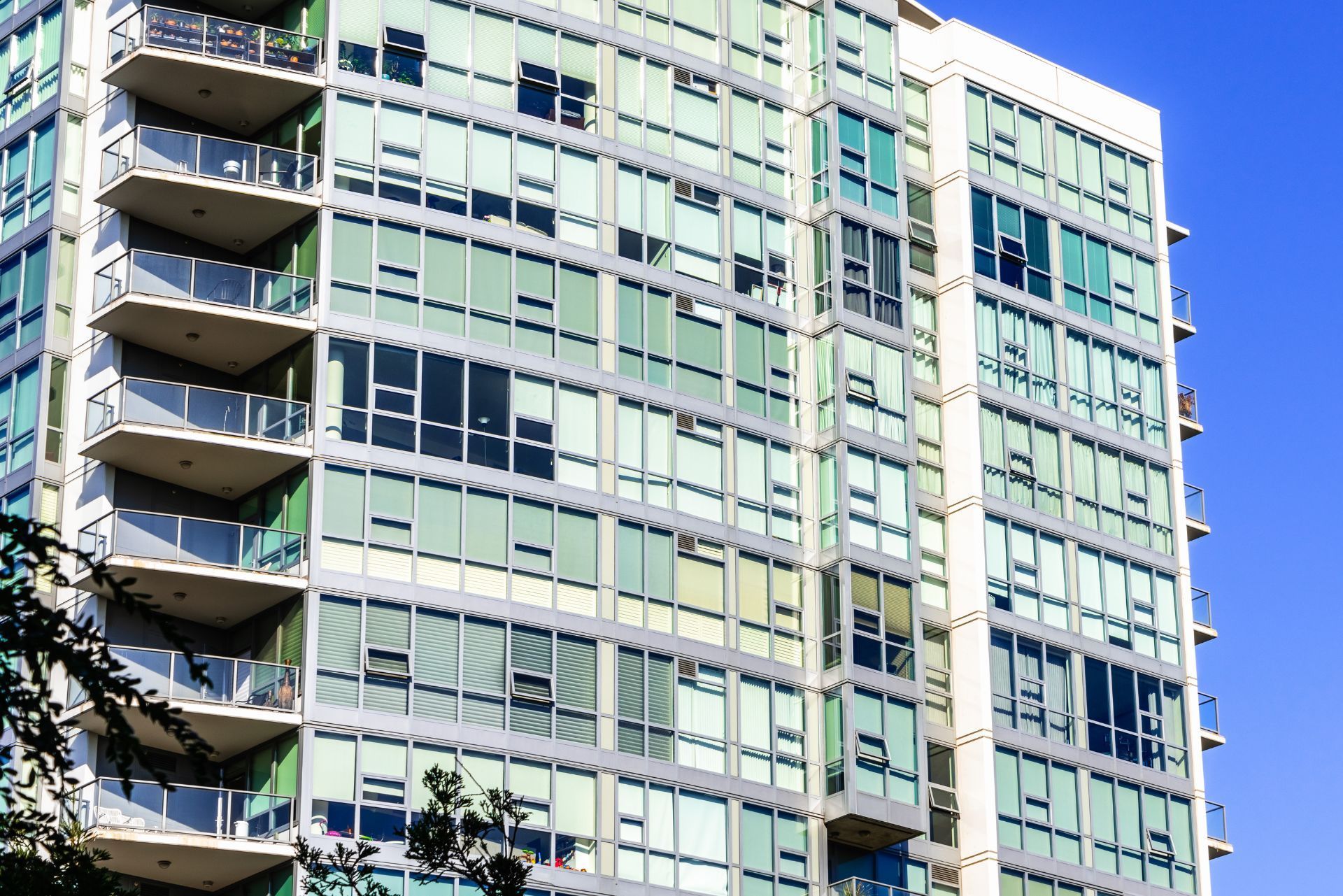
Top 3 Recommended Policies

Living in a condo offers a unique blend of convenience, community, and often, a lower maintenance lifestyle. However, just like any other type of home, it is essential to protect your investment. This is where condo insurance comes into play. Understanding the ins and outs of Texas condo insurance can help ensure that you are adequately covered in the event of an unforeseen incident. This article will provide a comprehensive overview of everything you need to know about condo insurance in Texas.
What is Condo Insurance?
Condo insurance, also known as an HO-6 policy, is designed to protect individual unit owners from financial losses due to various risks. Unlike homeowners insurance, which covers an entire property, condo insurance focuses on the interior of the unit and personal belongings. This type of insurance is crucial for condo owners as it fills the gaps left by the master policy held by the condo association.
Understanding the Master Policy
The master policy is the insurance that the condo association holds for the entire building. It typically covers the structure itself and common areas like hallways, pools, and gyms. However, the specifics can vary significantly between associations. Some master policies cover only the exterior of the building, while others may include liability coverage for common areas.
It's essential for condo owners to review their association's master policy to understand what is covered and what is not. This knowledge will help determine the necessary coverage for individual condo insurance policies. Additionally, owners should be aware that certain types of damage, such as flooding or earthquakes, may not be included in the master policy, necessitating additional coverage through their personal insurance. Understanding these nuances can empower owners to make informed decisions about their insurance needs.
Why is Condo Insurance Important?
Condo insurance is crucial for several reasons. First, it protects personal belongings from risks such as theft, fire, and water damage. Second, it provides liability coverage in case someone is injured in your unit. Lastly, it can cover additional living expenses if you are temporarily displaced due to a covered loss.
Without adequate condo insurance, owners may face significant out-of-pocket expenses in the event of a disaster. Therefore, having a robust insurance policy is not just a good idea; it is a necessity for financial security. Moreover, many lenders require condo insurance as a condition for mortgage approval, making it an essential step in the home-buying process. This requirement underscores the importance of having a policy that not only meets personal needs but also satisfies financial obligations, ensuring that condo owners can protect their investment and maintain peace of mind.

Types of Coverage in Texas Condo Insurance
Texas condo insurance policies typically include several types of coverage. Understanding these can help you tailor your policy to your specific needs. The primary types of coverage include personal property, liability, and additional living expenses.
Personal Property Coverage
This coverage protects your personal belongings, such as furniture, electronics, and clothing, from various risks. In Texas, personal property coverage can be based on actual cash value or replacement cost. The actual cash value takes depreciation into account, while replacement cost covers the expense of replacing items without considering depreciation.
When selecting personal property coverage, it's vital to take inventory of your belongings and estimate their total value. This will help ensure that you have sufficient coverage to replace your items in the event of a loss. Additionally, consider special endorsements for high-value items like jewelry, art, or collectibles, as these may require additional coverage beyond standard limits. Many insurance providers offer options to schedule these items, ensuring they are fully protected against theft or damage.
Liability Coverage
Liability coverage is another critical component of condo insurance. It protects you if someone is injured in your condo or if you accidentally damage someone else's property. For instance, if a guest slips and falls in your unit, liability coverage can help cover medical expenses and legal fees if a lawsuit arises.
In Texas, it is advisable to have at least $100,000 in liability coverage, although many experts recommend higher limits for added protection. This coverage can provide peace of mind, knowing that you are protected against potential financial burdens resulting from accidents. Furthermore, consider the implications of your lifestyle on liability coverage; for example, if you frequently host gatherings or have pets, you may want to increase your limits to account for the additional risks associated with these activities.
Additional Living Expenses (ALE) Coverage
If your condo becomes uninhabitable due to a covered loss, ALE coverage can help pay for temporary housing and additional living costs. This may include hotel stays, meals, and other necessary expenses incurred while your unit is being repaired.
Understanding the limits of ALE coverage is crucial, as policies can vary significantly. Some may cover expenses for a few weeks, while others may extend for several months. Knowing these details can help you plan for potential disruptions in your living situation. It's also wise to keep receipts and records of your additional living expenses during this time, as they may be required for reimbursement. Additionally, familiarize yourself with the specific terms of your policy regarding what constitutes a covered loss, as this can affect your eligibility for ALE benefits.
Factors Affecting Condo Insurance Rates in Texas
The cost of condo insurance in Texas can vary widely based on several factors. Understanding these factors can help you find the best policy at an affordable price.
Location
Your condo's location plays a significant role in determining insurance rates. Areas prone to natural disasters, such as hurricanes or floods, may have higher premiums. Additionally, if your condo is in a high-crime area, this can also increase your insurance costs.
It is essential to research the crime rates and natural disaster risks in your area to understand how they may impact your insurance rates. Some insurers may offer discounts for properties in safer neighborhoods or lower-risk areas. Furthermore, proximity to emergency services, such as fire stations and police departments, can also influence rates. Properties located near these services may benefit from lower premiums due to the reduced response time in emergencies, which can mitigate potential losses.
Building Features
The age and construction type of your condo building can also affect insurance rates. Newer buildings with modern safety features, such as fire alarms and sprinkler systems, may qualify for lower premiums. On the other hand, older buildings may have higher rates due to outdated systems that pose a greater risk.
Additionally, the materials used in construction can influence rates. For example, buildings made from fire-resistant materials may have lower premiums compared to those made from wood. Beyond construction materials, the overall design of the building can also be a factor; condos with features like reinforced roofs or impact-resistant windows may be viewed more favorably by insurers, potentially leading to lower rates. It's worthwhile to discuss these aspects with your insurance agent to understand how your building's features can impact your policy.
Coverage Amount and Deductibles
The amount of coverage you choose and your deductible can significantly impact your insurance premiums. Higher coverage limits typically result in higher premiums, while opting for a higher deductible can lower your monthly costs. It is essential to strike a balance between affordable premiums and adequate coverage.
When selecting a deductible, consider your financial situation and how much you can comfortably pay out-of-pocket in the event of a claim. A thorough evaluation of your needs will help you make an informed decision. Additionally, it's important to review the specific coverage options available, such as personal property coverage, loss of use, and liability protection. Each of these elements can play a crucial role in your overall policy and may offer further customization to suit your lifestyle. Engaging with an insurance professional can provide clarity on how different choices will affect your premiums and coverage, ensuring that you make the best decision for your unique circumstances.
Common Exclusions in Condo Insurance Policies
While condo insurance provides essential coverage, it is crucial to be aware of common exclusions that may leave you vulnerable. Understanding these exclusions can help you make informed decisions about additional coverage options.
Flood and Earthquake Damage
Most standard condo insurance policies do not cover damage caused by floods or earthquakes. In Texas, where flooding can be a significant risk, it is advisable to consider purchasing a separate flood insurance policy. Similarly, if you live in an area prone to earthquakes, additional coverage may be necessary.
It's essential to consult with your insurance agent to determine the best course of action for protecting your condo against these natural disasters. Additionally, understanding the specific flood zones in your area can help you gauge the level of risk and the potential need for flood insurance. Many communities offer resources and maps that outline flood-prone areas, which can be invaluable in making informed decisions regarding your insurance needs.
Wear and Tear
Condo insurance typically does not cover damage resulting from normal wear and tear. This includes issues like mold growth, pest infestations, and general deterioration of property over time. Regular maintenance and inspections are crucial to prevent these issues from escalating into significant problems.
Homeowners should be proactive in addressing maintenance concerns to avoid potential out-of-pocket expenses that insurance will not cover. Establishing a routine maintenance schedule can help identify issues early on, such as leaks or cracks, which can lead to more severe damage if left unaddressed. Furthermore, keeping records of maintenance can also be beneficial in discussions with your insurance provider, should a claim arise related to property damage.
High-Value Items
Many standard condo insurance policies have limits on coverage for high-value items such as jewelry, art, and collectibles. If you own valuable items, consider purchasing additional coverage or a rider to ensure they are adequately protected.
Taking an inventory of high-value items and discussing coverage options with your insurance agent can provide peace of mind and ensure that you are not left vulnerable in the event of a loss. Additionally, documenting your high-value items with photographs and appraisals can streamline the claims process and help establish their worth in case of theft or damage. This proactive approach not only safeguards your investments but also enhances your overall insurance strategy, ensuring that you are fully covered for what matters most to you.
How to Choose the Right Condo Insurance Policy
Choosing the right condo insurance policy can be a daunting task, but with careful consideration, it can be manageable. Here are some steps to help you navigate the process.
Assess Your Needs
The first step in choosing a condo insurance policy is to assess your specific needs. Consider factors such as the value of your personal belongings, the level of liability coverage you desire, and any additional risks unique to your location.
Taking an inventory of your belongings and estimating their value can help you determine the appropriate amount of personal property coverage. Additionally, evaluating your lifestyle and potential risks will guide you in selecting the right liability limits. For instance, if you frequently host gatherings, you may want to consider higher liability coverage to protect against potential accidents that could occur in your home. Furthermore, if you live in an area prone to natural disasters, such as floods or earthquakes, you might need to look into additional coverage options that specifically address those risks.
Shop Around for Quotes
Once you have a clear understanding of your needs, it is time to shop around for quotes. Contact multiple insurance providers to compare coverage options and premiums. Many insurers offer online quotes, making it easier to gather information.
When comparing quotes, pay attention to the coverage limits, deductibles, and any additional features or discounts offered. This will help you find a policy that meets your needs without breaking the bank. Additionally, don't hesitate to inquire about bundling discounts if you have other insurance policies, such as auto or life insurance, with the same provider. Bundling can often lead to significant savings and streamline your insurance management.
Read Reviews and Ask for Recommendations
Before making a final decision, it is wise to read reviews and ask for recommendations from friends or family members. Customer feedback can provide valuable insights into the claims process, customer service, and overall satisfaction with the insurer.
Additionally, consider consulting with an insurance agent who specializes in condo insurance. They can provide personalized guidance and help you navigate the complexities of different policies. An experienced agent will not only clarify the fine print but may also highlight coverage options that you might not have considered, such as loss assessment coverage, which can protect you against shared costs in case of damage to common areas. This can be particularly important in a condo setting, where shared ownership of communal spaces can lead to unforeseen expenses.

Discounts and Savings on Condo Insurance
Bundling Policies
One of the most common ways to save on condo insurance is by bundling it with other insurance policies, such as auto or life insurance. Many insurers offer discounts for customers who hold multiple policies with them. This not only simplifies your insurance management but can also lead to substantial savings.
Security Features
Installing security features in your condo, such as smoke detectors, security systems, and deadbolt locks, can qualify you for discounts. Insurance providers often reward homeowners who take proactive steps to protect their property.
Claim-Free Discounts
Many insurance companies offer discounts for policyholders who have not filed any claims for a specified period. If you maintain a claim-free record, you may be eligible for lower premiums. This not only rewards responsible homeowners but also encourages preventive measures to avoid losses.
Conclusion
Texas condo insurance is an essential aspect of protecting your investment and ensuring peace of mind. By understanding the types of coverage available, the factors that affect rates, and the importance of assessing your specific needs, you can make informed decisions about your insurance policy.
Contact Us

